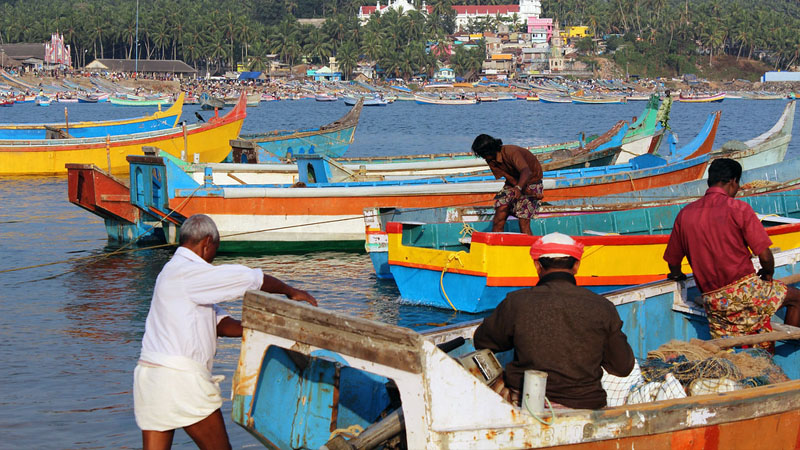Exclusive content

Rising sea temperatures in India have brought about a significant decline in the availability of key seafood items, impacting traditional summer staples such as shrimp, anchovy, and sardines. Squid and mackerel, typically abundant during March-April, are now scarce commodities, with only half the usual quantities being found. The warmer waters have driven these aquatic organisms to seek cooler depths, resulting in fewer catches and challenging times for fishermen.
Dire Straits for Fishing Sector Workers
The repercussions of dwindling fish stocks are keenly felt by those in the fishing sector. Many return with empty boats, facing dire straits as a result. Fish availability peaks in the season before the trawling ban and during the monsoon season. However, the decline has been particularly pronounced in Kerala since the implementation of a trawling ban two years ago.
The historically rich Kollam fishing bank, extending from the northern edge of Vizhinjam to the southern reaches of Kochi, has witnessed a drastic reduction in the hauls of diverse seafood species. Fishermen report receiving only a fraction of their usual catch from these once-abundant waters.
Challenges and Restrictions
Even slight fluctuations in sea temperature can disrupt seafood stocks, compelling them to seek refuge in deeper, cooler waters. High temperatures have also forced fishermen to shorten their time at sea. Moreover, restrictions on fishing in neighboring states further exacerbate the problem, necessitating the import of fish from Tamil Nadu, Andhra Pradesh, Goa, and beyond.
The fishing industry grapples with multiple challenges, including declining seafood stocks driven by rising sea temperatures. These conditions have made it increasingly difficult for fishermen to secure a viable catch, even after spending extended periods at sea.
Rough Seas
In addition to declining seafood stocks, fishermen must contend with rough seas, further complicating their efforts to secure a sufficient catch. These adverse weather conditions pose risks to both life and property, adding another layer of challenge to an already difficult situation.
To compound matters, soaring fuel prices further strain the financial viability of fishing operations. The increased cost of fuel eats into fishermen’s profits, making it increasingly challenging to recoup expenses and maintain sustainable livelihoods.